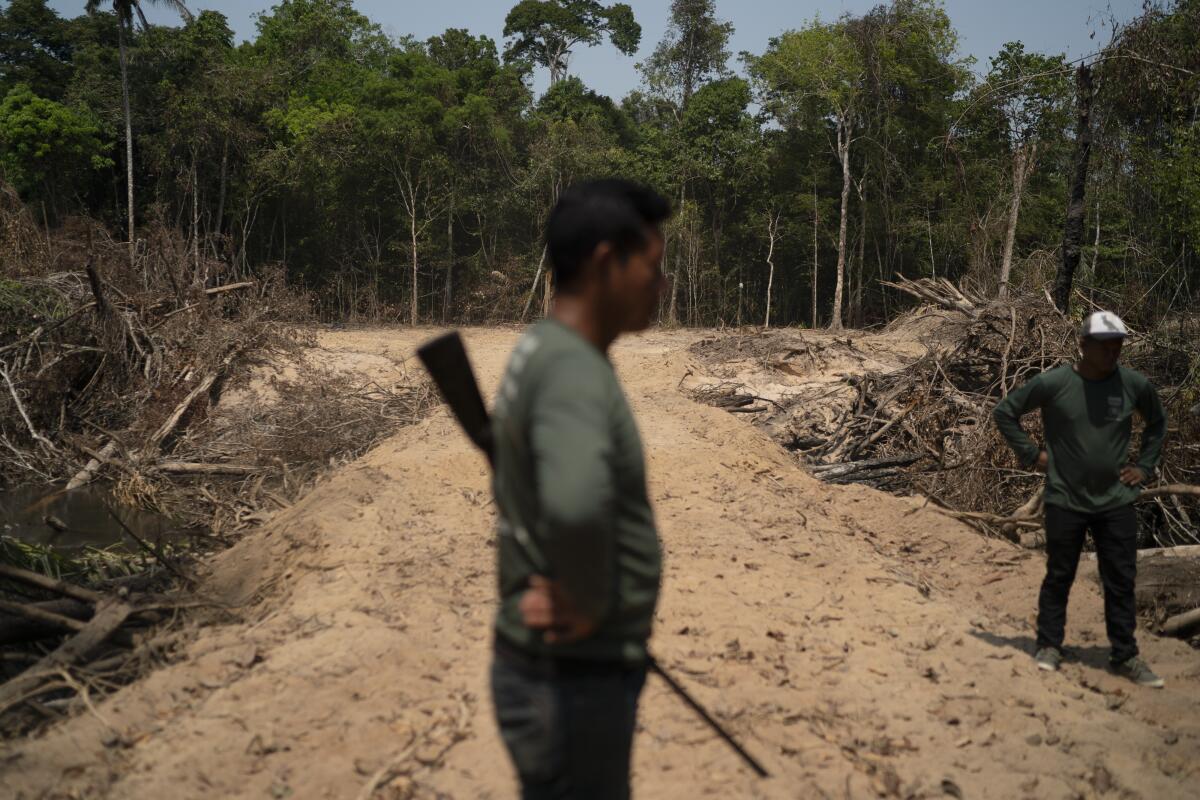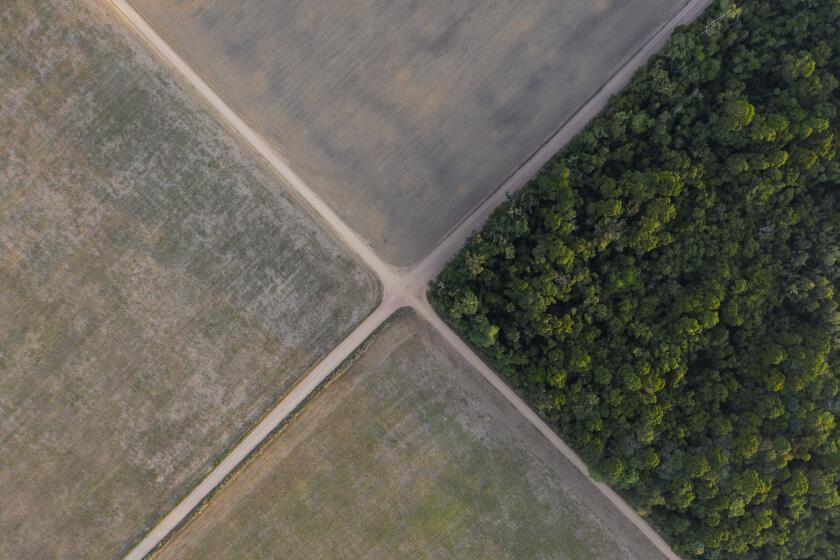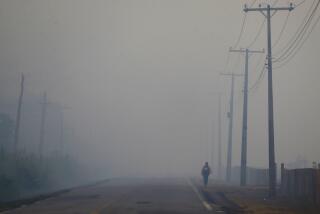Brazil authorities pay no mind to deforestation, report says

- Share via
RIO DE JANEIRO — Environmental criminals in the Brazilian Amazon destroyed public rainforests equal in size to El Salvador over the last six years, yet the Federal Police — the Brazilian version of the FBI — carried out only seven operations aimed at this loss, according to a new study.
The destruction took place in state and federal forests that are “unallocated,” meaning they do not have a designated use the way national parks and Indigenous territories do. According to official data, the Brazilian Amazon rainforest has about 224,000 square miles of forests in this category, or an area almost the size of Ukraine.
As Brazil has repeatedly legalized such invasions, these public forests have become the main target for criminals who illegally seize land.
The study, from Igarapé Institute, a Brazilian think tank, analyzed 302 environmental crime raids carried out by the Federal Police in the Amazon between 2016 and 2021. Only 2% targeted people illegally seizing undesignated public lands.
The report says the lack of enforcement likely stems from the weak legal protection of these areas, in other words, the same problem that draws the illegal activity. Environmentalists have long pressed the federal government to turn these unallocated public forests into protected areas.
Since Brazil’s return to democratic rule in 1985 after two decades of military rule, most governments have made moves to extend the legal protection, and today about 47% of the Amazon lies within protected areas, according to official data. President Jair Bolsonaro has repeatedly said the country has too many protected areas and stalled this decades-long policy.
In 2016, some 865 square miles of unallocated public land were illegally deforested. Last year, it reached almost double that amount. Over six years, the accumulated loss has reached some 7,100 square miles, according to the Amazon Environmental Research Institute, based on official data.
Brazilian President Jair Bolsonaro is sending troops to the Amazon in a bid to curb surging deforestation, but skeptics doubt its effectiveness.
Deforestation is increasingly taking place on these lands in particular. In 2016, they made up 31% of all illegally felled forest. Last year, that figure reached 36%.
Almost half of Brazil’s climate pollution comes from deforestation, according to an annual study from the Brazilian nonprofit network Climate Observatory. The destruction is so vast that the eastern Amazon has ceased to be a carbon sink, or absorber, for Earth and has converted into a carbon source, according to a study published in 2021 in the journal Nature.
Igarapé divides environmental crime in the Amazon into four major illicit or tainted activities: theft of public land, illegal logging, illegal mining, and deforestation linked to agriculture and cattle farming.
The enforcement operations were spread over 846 locations because most investigated deep into illegal supply chains. Nearly half were in protected areas, such as the Yanomami Indigenous Territory, which, despite a heavier police presence, suffers a growing invasion by thousands of illegal gold miners.
Some of the world’s biggest mining companies have withdrawn requests to research and extract minerals on Indigenous land in Brazil’s Amazon rainforest, and repudiated Brazilian President Jair Bolsonaro’s efforts to legalize mining activity in the areas.
The Igarapé study also pointed to an extensive “regional ecosystem of crime,” since the police operations took place in 24 of Brazil’s 27 states plus eight cities in neighboring countries. “Environmental crime stems from illicit economies that access consumer markets and financing outside the Amazon,” the report says.
The Federal Police didn’t respond to an Associated Press email seeking comment about its strategy in the Amazon.
More to Read
Sign up for Essential California
The most important California stories and recommendations in your inbox every morning.
You may occasionally receive promotional content from the Los Angeles Times.












